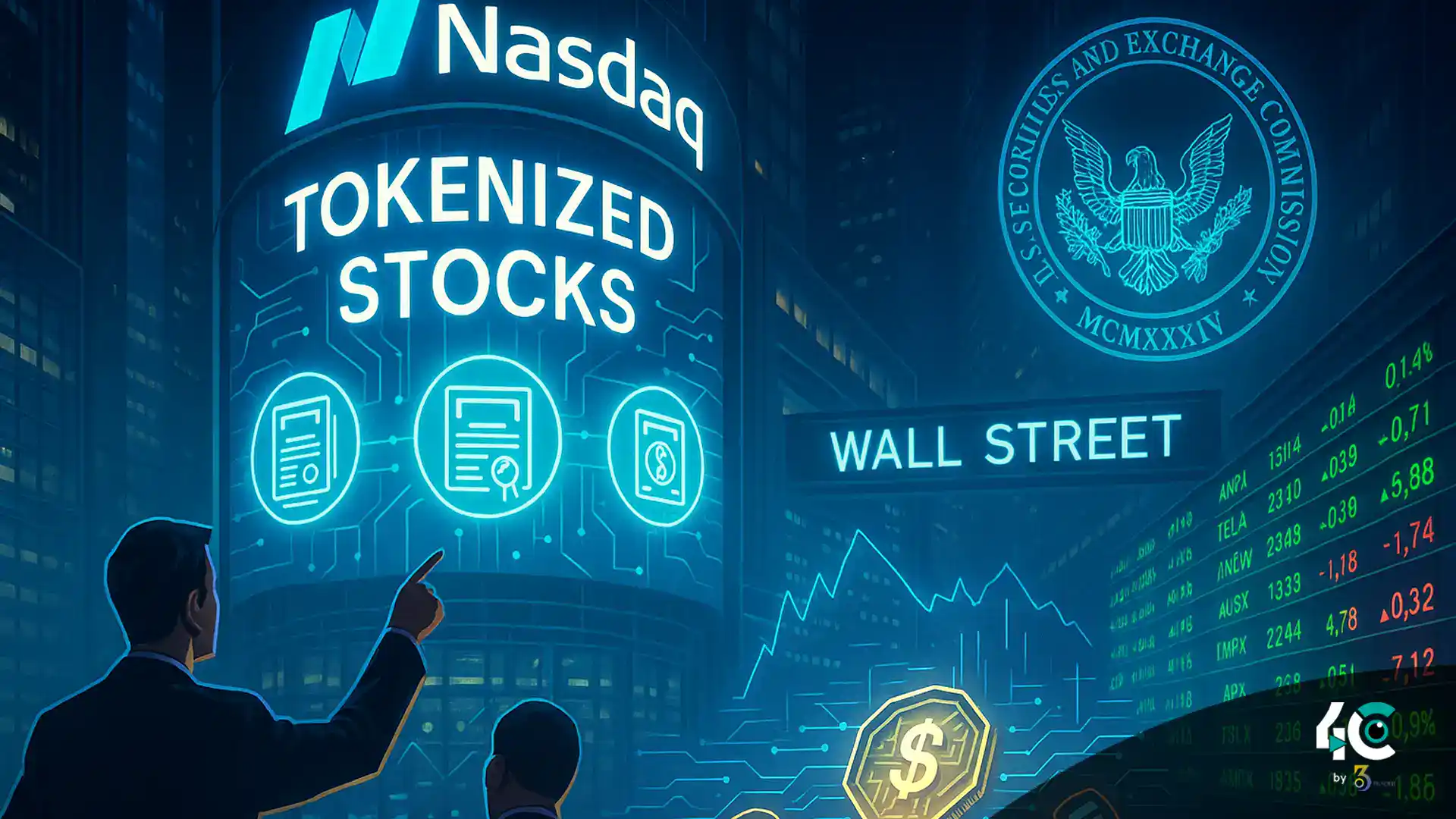Nasdaq Pushes for SEC Green Light on Tokenized Stocks
The Nasdaq Stock Exchange, the second-largest exchange in the world by market capitalization, has filed a formal request with the SEC to amend its rules, allowing tokenized shares to be treated as securities.
Under the proposal, tokenized stocks that use blockchain would be recognized and processed the same way as traditional equities, ensuring execution and settlement parity.
According to Bloomberg, this filing is more than just a technical adjustment — it could reshape the core principles of stock issuance and settlement in U.S. markets.
Tokenized Stocks Must Be Clearly Labeled
Nasdaq’s proposal emphasizes that all tokenized assets must be clearly identified for seamless clearing and settlement.
This ensures that institutions like the Depository Trust Company (DTC) can handle trades efficiently and avoid settlement disputes.
The submission also highlights that tokenized orders would carry the same rights, protections, and execution priority as standard equities on the Nasdaq Market Center, its electronic securities trading system.
Also Read : Gemini Files for Nasdaq IPO, Aiming to Raise $317 Million for Crypto Exchange Launch
Why Nasdaq Wants Tokenization Regulated
Nasdaq argues that tokenized equities should not be confined to unregulated or siloed venues, which often lack transparent pricing and investor protections.
The exchange insists that trading should occur only within frameworks established by Congress — namely national exchanges, broker-dealers, and alternative trading systems (ATS).
While blockchain may enhance efficiency and transparency, Nasdaq stresses that investor protection and sustainable market structure must remain the priority.
European Concerns and the Global RWA Race
Nasdaq also raised concerns about European platforms that provide access to tokenized U.S. equities without offering actual share ownership. These platforms typically issue digital rights instead, stripping investors of full shareholder rights, such as voting power.
The filing underscores the surge in global demand for real-world asset (RWA) tokenization, particularly for U.S. equities and ETFs. Offshore markets in Europe and Asia have already begun testing tokenized versions, highlighting the global competition.
Nasdaq’s move signals that Wall Street aims to keep tokenization within the U.S. regulatory framework, countering offshore growth.
What It Means for Investors
If approved, Nasdaq’s proposal would enable investors to trade tokenized shares of top U.S. companies — like Microsoft or Tesla — under regulated U.S. markets.
Potential benefits include:
- Improved liquidity
- Greater transparency
- Faster and more efficient settlements
- Broader integration of blockchain into financial markets
The SEC will now decide whether to approve the proposal. Regardless of the outcome, Nasdaq’s filing marks a historic inflection point in the adoption of tokenized assets on Wall Street.



























